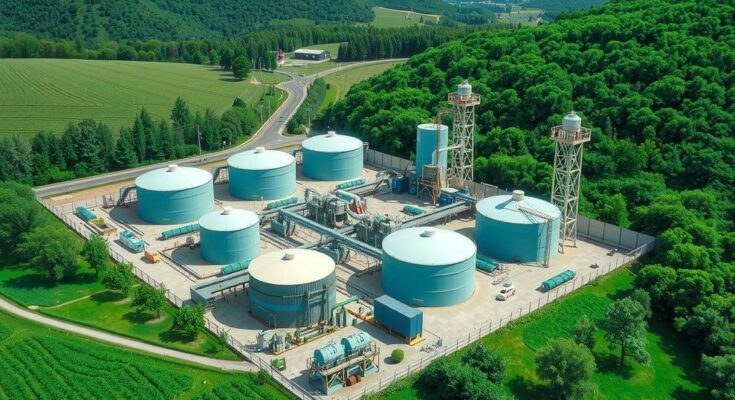Zimbabwe has announced a ban on exporting lithium concentrates, starting January 2027, pushing foreign mining companies to build processing facilities in the country. Mines Minister Winston Chitando highlighted the need for lithium sulphate production, which adds more value compared to concentrates. This decision reflects a broader goal to increase local job creation and strengthen the economy amid growing emphasis on foreign mining firms enhancing their contributions.
The Zimbabwean government has announced a ban on the export of lithium concentrates, effective January 2027. This measure aims to encourage foreign mining companies to establish processing and refining facilities within Zimbabwe. Previously, the country prohibited the export of unprocessed lithium ore in 2022, allowing only lithium concentrates to be exported.
Mines Minister Winston Chitando shared details during a media briefing, stating that from January 2027, it will be illegal to export lithium concentrates, and only lithium sulphates—representing enhanced value addition—will be permitted for shipment abroad. This policy seeks to elevate the value of Zimbabwe’s lithium products and create jobs domestically.
Chitando highlighted that major lithium producers, namely Bikita and Prospect Lithium Zimbabwe, are already in the process of developing plants to produce lithium sulphate. These plants are intended to upgrade lithium production, with Chitando emphasizing that lithium sulphate is crucial for battery manufacturing.
The Mines Minister called upon stakeholders within the lithium sector to invest in or establish partnerships with those setting up lithium sulphate facilities. He made it clear that collaboration will be essential and urged companies who are not investing in these facilities to enter into toll treatment agreements.
This move is part of a broader trend observed across Africa, where countries are pressuring foreign mining companies to add greater value to local economies. Zimbabwe’s push for the lithium industry emphasizes this ongoing effort to ensure domestic processing capabilities are realized and that mining plays a pivotal role in national development.
In conclusion, Zimbabwe’s impending ban on the export of lithium concentrates aims to foster local processing capabilities and bolster economic development. By transitioning to lithium sulphate production, the government hopes to enhance the value of its significant lithium reserves. Minister Chitando’s call for investment in processing facilities signals a critical step in reshaping the country’s mining sector for the future. This initiative aligns with a larger trend across Africa, emphasizing the necessity for local value addition in the mining industry.
Original Source: www.newzimbabwe.com




